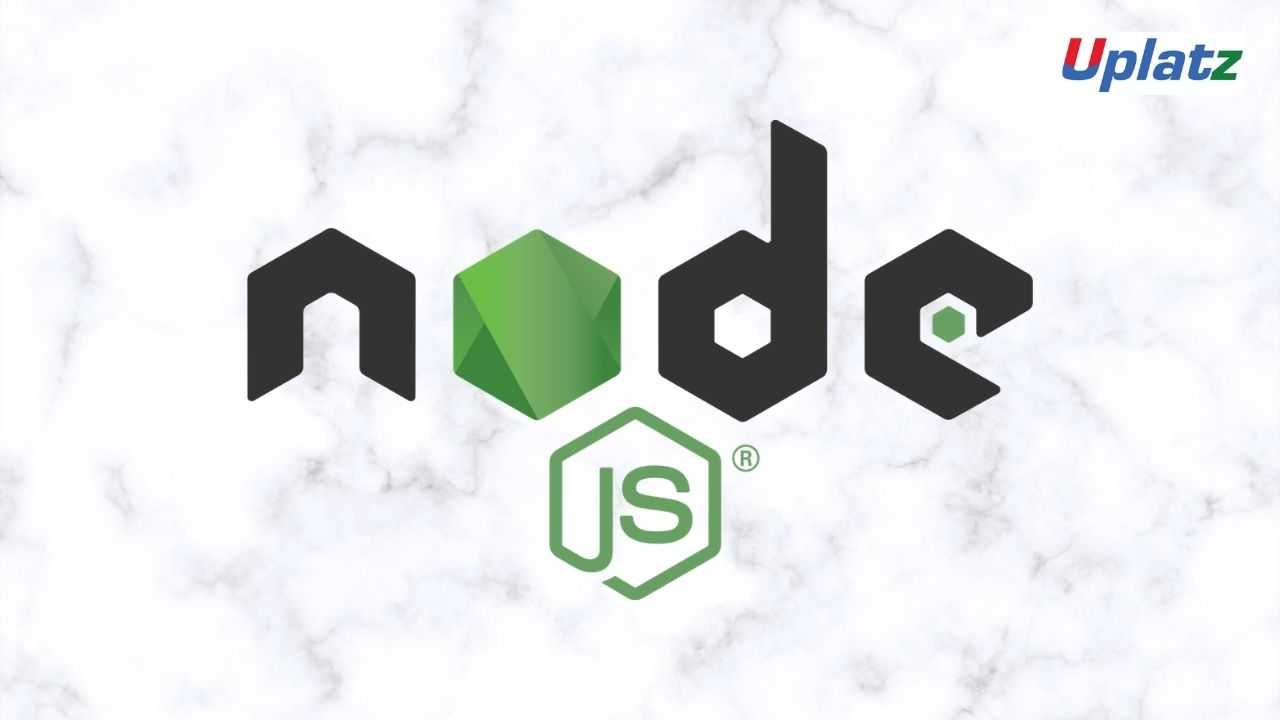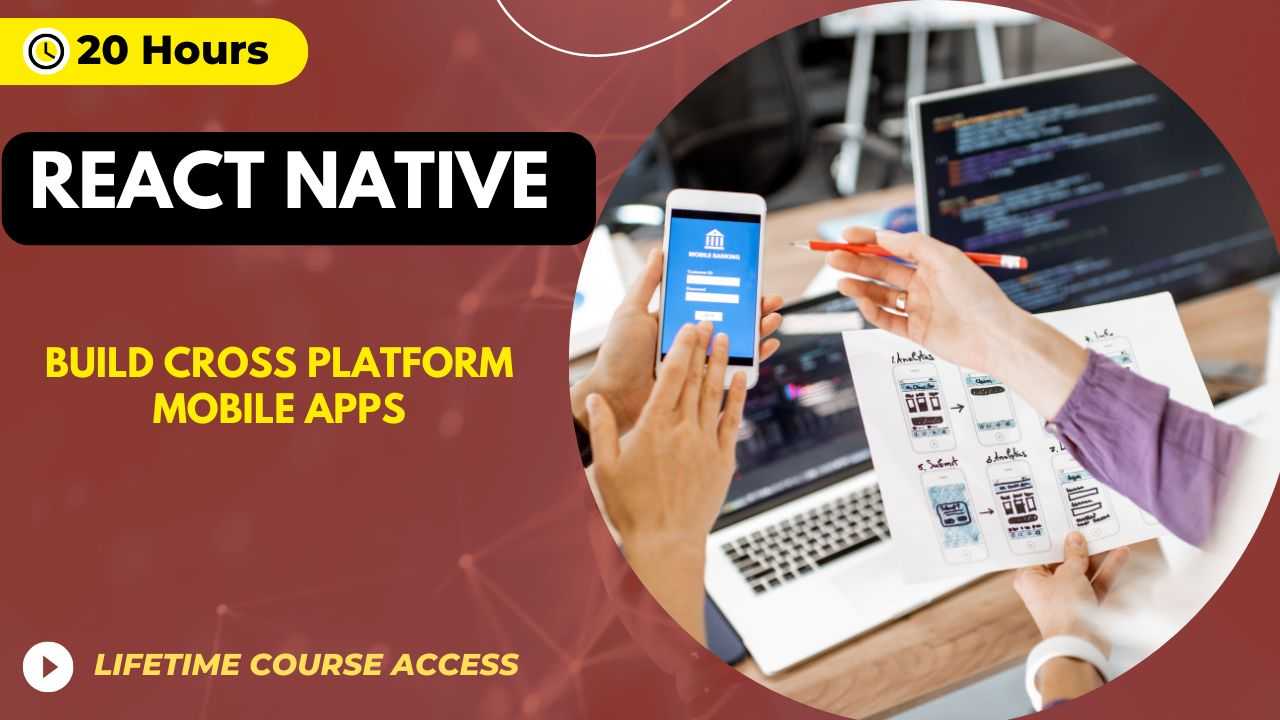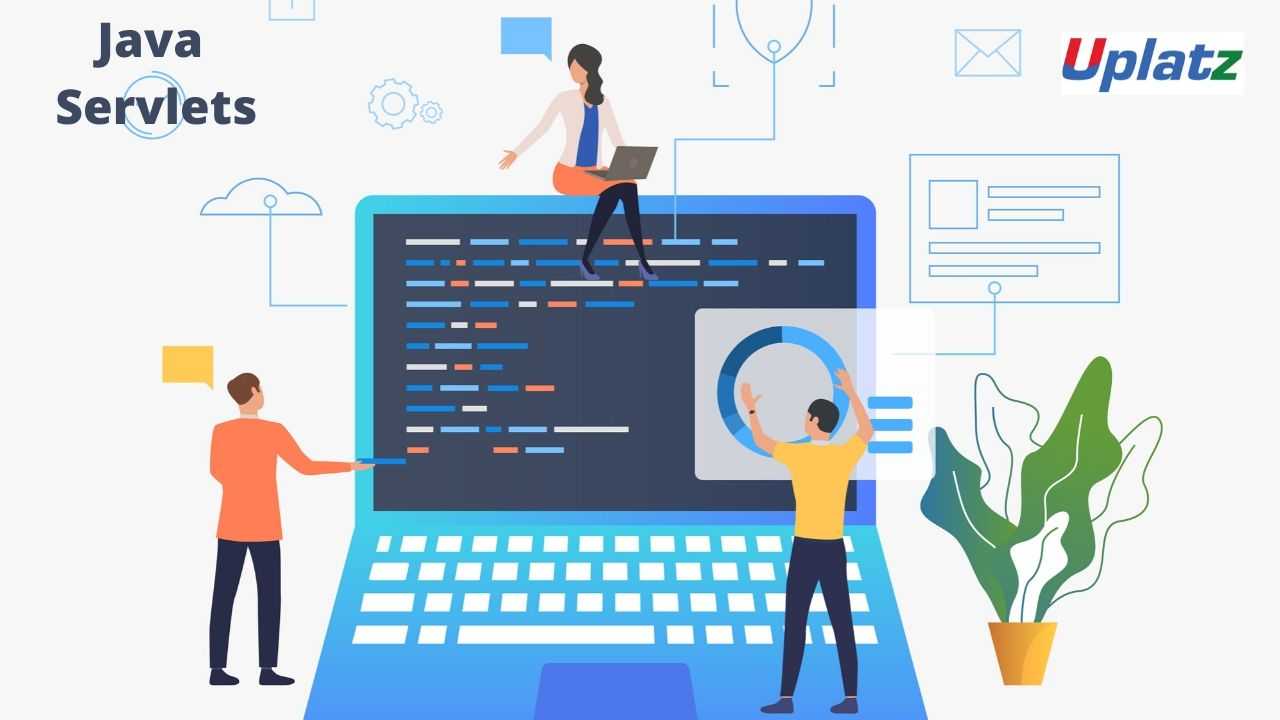Ruby Programming Language
Master the art of clean, elegant code with Ruby – From basics to building Full-Stack Web Applications. Perfect for developers and backend engineers.Preview Ruby Programming Language course
Price Match Guarantee Full Lifetime Access Access on any Device Technical Support Secure Checkout Course Completion Certificate 82% Started a new career
BUY THIS COURSE (
82% Started a new career
BUY THIS COURSE (GBP 12 GBP 29 )-
 88% Got a pay increase and promotion
88% Got a pay increase and promotion
Students also bought -
-

- Node.js
- 21 Hours
- GBP 12
- 1896 Learners
-

- React Native
- 20 Hours
- GBP 12
- 2788 Learners
-

- Java Servlets
- 11 Hours
- GBP 12
- 228 Learners

Ruby: Master Programming Fundamentals, Web Development & Automation – Self-Paced Online Course
Ruby is a dynamic, high-level, interpreted programming language that is celebrated for its simplicity, expressiveness, and developer-friendly syntax. Created with a focus on productivity and elegance, Ruby allows developers to write clean, readable, and maintainable code that closely mirrors human language. This self-paced course is designed for individuals seeking to break into the world of software development, learn a scripting language, or build web applications using a language known for developer happiness and powerful abstractions. Whether you're completely new to programming or an experienced developer exploring a new tool, Ruby offers a flexible and welcoming environment to start or expand your coding journey.
The course begins with a thorough introduction to Ruby fundamentals, covering essential concepts such as variables, data types, arithmetic operators, and control flow constructs like if, unless, case, and loops. You’ll quickly become comfortable with Ruby’s concise syntax and duck typing, which makes it easy to write flexible code without being bogged down by unnecessary boilerplate. With each new topic, you’ll complete hands-on exercises, short mini-projects, and practical challenges designed to help reinforce your understanding in real-world scenarios.
As the course progresses, you’ll explore object-oriented programming (OOP) in depth. Ruby is a pure object-oriented language, meaning almost everything—including numbers and strings—is an object. You'll learn to define and instantiate classes, create and override methods, manage instance variables, and build hierarchies using inheritance. Ruby’s powerful use of modules and mixins will allow you to add functionality to classes without using inheritance, promoting code reuse and separation of concerns. These principles form the foundation of reusable, well-structured Ruby programs.
You’ll also gain proficiency in some of Ruby’s most distinctive features, including blocks, procs, lambdas, and the yield keyword. These functional programming constructs enable flexible and elegant control over iteration, callbacks, and code flow. Understanding how Ruby treats functions as first-class objects helps you build more modular and expressive applications. In addition, you'll work with enumerables and iterators, mastering collection manipulation techniques such as map, select, reject, reduce, and more.
Ruby’s powerful standard library and extensive core methods make it an excellent choice for scripting and automation. You’ll explore file handling, string manipulation, hash and array operations, date/time utilities, and regular expressions—skills that are invaluable in both development and system administration. Exception handling is another core topic, and you’ll learn to use begin-rescue-ensure blocks to build resilient programs that gracefully recover from errors.
A major focus of the course is on real-world problem solving. You’ll build projects such as a command-line task manager, calculator, file parser, and web scraper, which demonstrate Ruby’s effectiveness in quickly automating tasks and processing data. These projects give you practical experience and result in a portfolio of applications you can showcase to employers or use in freelance work.
You’ll also receive an introduction to unit testing and behavior-driven development (BDD) using RSpec, Ruby’s most popular testing framework. Testing is a critical part of writing reliable software, and you’ll learn how to write clear, expressive test cases that ensure your code works as expected. You'll also explore MiniTest, another lightweight testing tool included in the Ruby standard library. These practices help you build confidence in your codebase and prepare for test-driven development (TDD) in professional settings.
While the course is focused on core Ruby, you’ll also get a glimpse into Ruby on Rails, the powerful web application framework built on Ruby. You’ll understand how your knowledge of Ruby translates into full-stack development and how the conventions of Rails simplify web development. This prepares you for future learning in web frameworks without overwhelming you early on.
Throughout the course, you’ll follow best practices in Ruby development, such as naming conventions, code organization, and documentation. You’ll learn how to use tools like RDoc to generate documentation and understand the value of readable code in team environments. You'll also get tips for working with IRB (Interactive Ruby), managing Ruby environments using RVM or rbenv, and installing external libraries (gems) using RubyGems.
By the end of the course, you will have built a strong command of the Ruby language. You’ll be capable of writing elegant, robust, and well-tested Ruby code. Whether you're scripting small utilities, building backend services, or preparing to dive into full-stack web development with Rails, this course equips you with the practical skills and confidence to move forward. Ruby’s emphasis on developer experience, coupled with your ability to build real applications, will give you a competitive edge in the job market and help you create better software faster.
You’ll also benefit from lifetime access to the course content, including future updates, downloadable project files, and access to a support community where you can connect with instructors and fellow learners. Whether your goal is to become a Ruby developer, automate repetitive tasks, or explore web development, this course offers a solid, flexible, and enjoyable introduction to one of the most elegant languages in programming today.
Course/Topic 1 - Coming Soon
-
The videos for this course are being recorded freshly and should be available in a few days. Please contact info@uplatz.com to know the exact date of the release of this course.
This course is designed to provide learners with a practical foundation in Ruby programming, preparing them to write clean, maintainable, and efficient code for real-world use. Through a structured and hands-on curriculum, learners will explore Ruby’s capabilities for scripting, automation, and application development.
By the end of this course, learners will be able to:
-
Understand and apply Ruby syntax, data types, and control structures.
-
Build and organize programs using object-oriented principles such as classes, inheritance, and modules.
-
Use blocks, procs, lambdas, and enumerables for expressive and functional programming.
-
Write and debug command-line applications and automation scripts in Ruby.
-
Perform file manipulation, regular expressions, and string operations using Ruby’s standard library.
-
Handle exceptions and use built-in debugging tools effectively.
-
Apply unit testing practices using RSpec and MiniTest frameworks.
-
Follow Ruby style guides, naming conventions, and documentation standards.
Build real-world mini-projects such as a to-do app, calculator, and web scraper.Prepare for further learning in frameworks like Ruby on Rails for full-stack development.
Ruby – Course Syllabus
1. Introduction to Ruby
-
History and philosophy of Ruby (Matz’s principles)
-
Installing Ruby and using IRB
-
RubyGems and Bundler basics
-
Running Ruby programs and file structure
-
Ruby vs other scripting languages (Python, JavaScript)
2. Ruby Language Fundamentals
-
Data types: Strings, Numbers, Symbols, Arrays, Hashes
-
Control structures: if, unless, case, loops
-
Methods and return values
-
String and array manipulation
-
Working with ranges, blocks, and iterators (each, map, etc.)
3. Object-Oriented Programming in Ruby
-
Defining classes and objects
-
initialize method and instance variables
-
Attribute accessors: attr_reader, attr_writer, attr_accessor
-
Inheritance and method overriding
-
Modules and mixins
4. Advanced Ruby Concepts
-
Blocks, Procs, and Lambdas
-
Closures and yield
-
Singleton methods and the eigenclass
-
Method missing and dynamic dispatch
-
Duck typing and polymorphism
5. Metaprogramming in Ruby
-
Open classes and monkey patching
-
Defining methods dynamically (define_method)
-
method_missing and respond_to_missing?
-
DSLs in Ruby (e.g., Rake, Rails)
-
Practical metaprogramming use cases
6. File Handling and I/O
-
Reading from and writing to files
-
Working with directories
-
Standard input/output and command-line arguments
-
Exception handling (begin, rescue, ensure)
-
JSON, YAML, and CSV parsing
7. Testing and Debugging in Ruby
-
Unit testing with Minitest and RSpec
-
Test-driven development (TDD) basics
-
Using pry and byebug for debugging
-
Mocking and stubbing techniques
-
Writing maintainable and testable code
8. Ruby in Web Development (Intro to Rails)
-
Basics of Sinatra (micro web framework)
-
MVC architecture introduction
-
Rails overview and comparison with Sinatra
-
Creating a simple web app using Ruby frameworks
-
Routing, views, and controllers in Ruby web projects
9. Package Management and Ecosystem
-
RubyGems deep dive
-
Creating and publishing your own gem
-
Using Bundler and Gemfile
-
Popular Ruby libraries: Nokogiri, HTTParty, Faraday, etc.
10. Final Project & Real-World Applications
-
Build a CLI tool, API wrapper, or mini web app
-
Apply OOP, metaprogramming, and file I/O
-
Include tests, error handling, and clean code practices
-
Project presentation and code review
-
Interview prep: Ruby coding challenges and best practices
Upon successful completion of the Ruby course, learners will receive a Certificate of Completion from Uplatz, validating their proficiency in Ruby programming fundamentals and development practices.
This certification proves your ability to build working Ruby programs, follow best practices in coding, and understand core object-oriented and scripting techniques. It serves as a valuable credential for entry-level development positions, freelance opportunities, or continued learning in Ruby-based frameworks.
By showcasing this certification on your resume, LinkedIn profile, or professional portfolio, you can stand out to employers looking for developers fluent in elegant, efficient scripting languages.
Ruby is a highly sought-after language in both startup environments and enterprise development due to its simplicity and productivity. Completing this course opens doors to roles such as:
-
Ruby Developer
-
Software Engineer
-
Web Developer (Ruby/Rails)
-
Scripting/Automation Engineer
-
QA Engineer with Ruby Testing Tools
-
DevOps/CI Automation Specialist
Ruby is widely used in web development, automation, test scripting, and back-end services. Major companies like Shopify, GitHub, Airbnb, and Basecamp use Ruby, making it a valuable skill for aspiring developers across tech sectors.
-
What is Ruby?
Ruby is an open-source, object-oriented scripting language designed for simplicity and productivity, with a focus on readable syntax. -
What are the key features of Ruby?
Dynamic typing, garbage collection, mixins, metaprogramming, and a rich standard library are some of Ruby’s standout features. -
What is a block in Ruby?
A block is an anonymous piece of code that can be passed to methods and executed, often used in iteration and functional programming. -
How is Ruby different from Python?
Both are high-level and dynamic, but Ruby emphasizes convention, developer happiness, and metaprogramming more than Python. -
What are mixins in Ruby?
Mixins are modules that add functionality to classes without inheritance, promoting code reuse and composition. -
What is RSpec?
RSpec is a popular Ruby testing framework that supports behavior-driven development (BDD) and readable test syntax. -
How do you handle exceptions in Ruby?
Using begin-rescue-end blocks to catch and handle errors, optionally with ensure and else clauses. -
What is a gem in Ruby?
A gem is a packaged Ruby library or application that can be installed via RubyGems and reused across projects. -
What are procs and lambdas in Ruby?
They are objects representing blocks of code that can be stored in variables and passed as parameters, with slight differences in behavior. -
Can Ruby be used for web development?
Yes, especially with frameworks like Ruby on Rails, Sinatra, and Hanami, which simplify full-stack application development.









